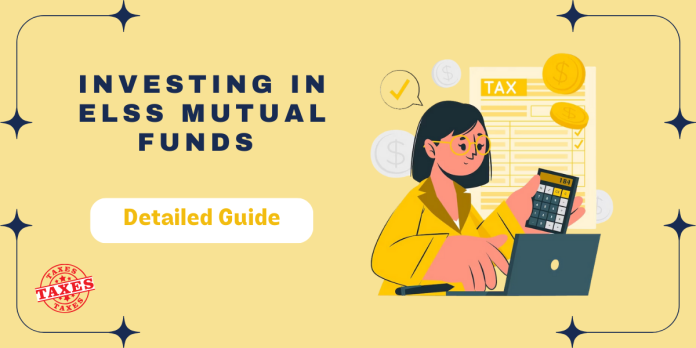Mutual funds are a popular investment option for a variety of reasons, including their high return potential, diversification, and liquidity. However, one of the most significant benefits of investing in mutual funds is the tax savings they provide.
Individual taxpayers can claim a deduction of up to Rs 1.5 lakh each fiscal year under Section 80C of the Income Tax Act, 1961, for investments in certain designated instruments, including Equity Linked Savings Schemes (ELSS) mutual funds.
ELSS funds are equity-focused mutual funds that primarily invest in equities. They have a three-year lock-in term, which implies that investors cannot redeem their units before three years have passed from the date of investment.
This lock-in period, however, should not prevent investors from investing in ELSS funds because it is a tiny price to pay for the tax advantages they provide. In reality, ELSS funds are one of the finest methods to reduce taxes on your income while also potentially generating strong long-term gains.
Read: Mutual Funds: A Beginner’s Guide to Building Wealth
How to invest in ELSS funds:
Investing in ELSS funds is a simple process. You can invest either through a mutual fund distributor or directly through the website of the mutual fund company.
If you are new to investing in mutual funds, it is advisable to go through a mutual fund distributor. A mutual fund distributor can help you choose the right ELSS funds for your needs and risk tolerance and also guide you through the investment process.
To invest in ELSS funds directly through the website of the mutual fund company, you will need to create an account with the company. Once you have created an account, you can select the ELSS funds you want to invest in and place your order.
How much to invest in ELSS funds
The amount you invest in ELSS funds will depend on your individual needs and risk tolerance. However, it is important to note that you can only claim a tax deduction of up to Rs 1.5 lakh per financial year on your investments in ELSS funds.
If you are investing in ELSS funds for the first time, it is advisable to start with a small amount and gradually increase your investments over time. This will help you reduce your risk and also give you a better understanding of how ELSS funds work.
When to invest in ELSS funds?
The best time to invest in ELSS funds is at the beginning of the financial year, i.e., April 1. This will give you the maximum amount of time to benefit from the tax deduction.
However, if you are unable to invest at the beginning of the financial year, you can still invest in ELSS funds at any time during the year. However, keep in mind that you will only be able to claim a tax deduction for the amount invested in the current financial year.
Benefits of investing in ELSS funds
There are many benefits of investing in ELSS funds, including:
- Tax benefits: ELSS funds are the only type of mutual funds that offer tax benefits under Section 80C of the Income Tax Act, 1961. You can claim a deduction of up to Rs. 1.5 lakh per financial year on your investments in ELSS funds.
- Potential for high returns: ELSS funds are equity-oriented mutual funds, which means that they have the potential to generate high returns over the long term. However, it is important to note that equity markets are volatile and there is always a risk of losing money.
- Diversification: ELSS funds invest in a variety of stocks, which helps to diversify your portfolio and reduce your risk.
- Liquidity: ELSS funds are open-ended mutual funds, which means that you can redeem your units at any time after the lock-in period of three years.
How to choose the right ELSS funds for you?
When choosing ELSS funds, it is important to consider the following factors:
- Investment goals: What are your investment goals? Are you saving for retirement, a child’s education, or a down payment on a house? Once you know your investment goals, you can choose ELSS funds that are aligned with your goals.
- Time horizon: How long are you planning to stay invested? ELSS funds are best suited for long-term investors, as they have the potential to generate high returns over the long term.
- Risk tolerance: How much risk are you comfortable taking? ELSS funds are equity-oriented mutual funds, which means that they are more volatile than debt funds. Choose ELSS.
Conclusion:
Investing in ELSS mutual funds is a great way to save tax on your income, while also having the potential to generate good returns over the long term. However, it is important to choose the right ELSS funds for your needs and risk tolerance.


